ERP Consulting: Expert Guidance for Smarter ERP Decisions

Implementing or upgrading an Enterprise Resource Planning (ERP) system is a major milestone for any organization — one that can dramatically impact efficiency, scalability, and profitability. However, without proper guidance, ERP projects can spiral into budget overruns, employee resistance, and poor adoption. That’s where ERP consulting plays a critical role.
An ERP consultant doesn’t just help you pick software — they become your strategic partner in aligning your business goals with the right technology, processes, and implementation roadmap.
In this article, we’ll explore what ERP consulting is, when and why you need it, what services it includes, and how to choose the right ERP consulting partner for your business.
👨💼 What is ERP Consulting?
ERP consulting is a specialized advisory service that helps businesses plan, select, implement, customize, and optimize ERP systems. Consultants bring deep expertise in both business processes and technical ERP solutions — acting as a bridge between business strategy and software execution.
Their goal? To ensure that the ERP system:
-
Matches your operational needs
-
Scales with your growth
-
Delivers measurable ROI
📌 Why ERP Consulting Matters
An ERP system touches every department in your business — from accounting and HR to logistics, sales, and customer service. It’s not just an IT decision; it’s a company-wide transformation.
Without expert ERP consulting, you risk:
-
Choosing the wrong system or vendor
-
Poorly defined project scope
-
Misalignment between software features and real business needs
-
Employee resistance and lack of user adoption
-
Data migration and integration issues
-
Increased costs and delays
🔑 ERP consultants help de-risk the entire process, ensuring your ERP investment pays off in both the short and long term.
🧰 Key ERP Consulting Services
1. ERP Readiness Assessment
-
Analyze current systems, workflows, and pain points
-
Define strategic goals and business requirements
-
Identify gaps in processes and data management
2. ERP Selection Support
-
Vendor comparison and evaluation
-
Demos and proof-of-concept coordination
-
RFP (Request for Proposal) preparation
-
Cost-benefit analysis
3. Implementation Strategy
-
Develop a detailed project plan and timeline
-
Define milestones, responsibilities, and resource allocation
-
Establish KPIs for success
4. Process Optimization
-
Redesign inefficient workflows before system implementation
-
Align business processes with ERP best practices
5. Customization & Integration Advisory
-
Recommend where to customize vs configure
-
Ensure scalable, secure system architecture
-
Identify integration needs with legacy systems or third-party tools
6. Change Management & Training
-
Build internal buy-in for ERP adoption
-
Develop training plans for users
-
Manage communication and transition
7. Post-Go-Live Support
-
Monitor performance and user feedback
-
Recommend improvements and updates
-
Assist with long-term ERP roadmap planning
🧠 Benefits of Hiring an ERP Consultant
-
✅ Objective, unbiased guidance
Consultants are independent — they focus on what’s best for your business, not what a vendor wants to sell. -
✅ Reduced project risk
Avoid costly mistakes, scope creep, or choosing the wrong system. -
✅ Faster time-to-value
Accelerate implementation and reach ROI sooner with expert strategy and execution. -
✅ Tailored ERP solution
Your business is unique — your ERP strategy should be too. -
✅ Internal team support
Offload heavy lifting and let internal teams focus on operations.
⚠️ When Do You Need ERP Consulting?
-
You’re implementing ERP for the first time
-
You’re migrating from a legacy system
-
You’ve outgrown your current ERP or need new modules
-
Past implementations failed or caused internal friction
-
You lack in-house ERP expertise
-
You’re unsure about vendors, costs, or timeline
🛠️ ERP Consulting vs ERP Implementation Partner
While ERP consultants focus on analysis, strategy, and planning, ERP implementation partners often handle the actual deployment and technical execution.
In many cases, they work together:
-
Consultant = strategic planning, system selection, business alignment
-
Partner = software configuration, development, deployment
💡 Some firms offer both services — just ensure there is transparency and no conflict of interest.
🔍 How to Choose the Right ERP Consultant
-
Industry Experience
Do they understand your business model and regulatory environment? -
Vendor Independence
Are they objective, or do they push certain products? -
Track Record
Have they successfully completed similar ERP projects? -
Communication Skills
Can they work well with both IT and business teams? -
Change Management Focus
Do they support your people, not just the technology?
📈 Real-World Example
A mid-sized manufacturing company was struggling with disconnected systems — manual inventory tracking, isolated sales data, and redundant finance processes. With help from an ERP consultant, they:
-
Assessed inefficiencies
-
Chose a scalable ERP system (Cloud-based)
-
Redesigned workflows across departments
-
Trained staff before go-live
-
Reduced order processing time by 40%
-
Improved inventory accuracy to 99.5%
🧭 Conclusion: ERP Consulting is a Strategic Investment
ERP consulting is not a luxury — it’s a risk-mitigation and value-maximization strategy.
The right consultant helps you align technology with business outcomes, choose the right tools, implement efficiently, and build internal confidence in the system. Whether you’re just starting your ERP journey or looking to optimize an existing system, an experienced ERP consultant will save you time, money, and countless headaches.

